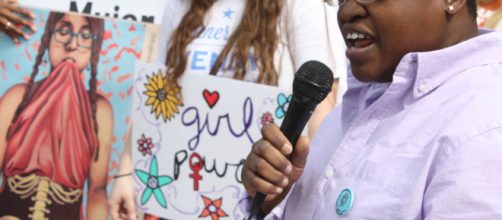International Women’s Day (IWD) is aimed at inspiring women to advocate for their rights. On March 8 every year, the world celebrates the achievements and contributions of women while simultaneously highlighting the glaring inequality and inequity they still face. The movement advocating for women's rights originated over a century ago but still remains relevant today, with the theme this year being to Press for Progress. However, creating this space for women to feel safe and acknowledged has not been as inclusive as it should be. The contributions of Black Women are still systematically excluded or lumped into one homogeneous experience.
In light of this, and on the heel of Black History Month, let us pay tribute to the black women who have made, and still are making significant contributions to the movement and the world.
How have black women influenced activism?
From activists to politicians, there are so many black women whose contributions have improved the lives of not only black women but all women and men. If you are familiar with the statement "I’m sick and tired of being sick and tired," then Fannie Lou Hamer (1917-1977) should come to mind. Hamer was a tireless voting activist and civil rights leader who fought for the registration of as many African-American voters as possible. She was committed to improving the lives of the poor minorities in her state and her contributions to this, and the movement is etched in the annals of history and documented in the National Women’s Hall of Fame.
By dedicating her life to helping African-American women in any way she could, Dorothy Height (1912-2010) initiated programs that ensured voting rights, especially for black women, and facilitated integration of public spaces. A vocal women’s activist, Height put equality for black women at the forefront of her advocacy work after being denied entry to a college because of her race and gender. She is considered the "godmother of civil rights" and was the President of the National Council of Negro Women for several decades. In this position, she galvanized black women around the race movement at the time, to have their voices heard and valued.
Another powerful black woman is the political activist, educator, and author Angela Davis.
She is a fierce woman whose contributions shaped the future for feminists and African-Americans across the country. Influencing the radical counterculture movement of the 1960s, along with being a former Black Panther member, Davis never shied away from controversy and did transformative work in the feminist and social justice movements. She is currently a Distinguished Professor Emerita at the University of California and still inspires the women’s movement while remaining a beacon of light for black women.
Today, there's a new generation of black female activists who are continuing the work of their predecessors. Of note are Alicia Garza, Patrisse Cullors, and Opal Tometi; founders and leaders of the Black Lives Matter movement and hashtag.
They launched the hashtag in September 2013 after a spate of racially-charged police killings rocked the nation. It was the protest in the wake of Mike Brown’s and Eric Garner’s killings that helped to initiate a national conversation about the violent realities of race, gender and police brutality in America.
In June 2015, a rambunctious young black woman removed the Confederate battle flag at a Confederate monument in South Carolina. Bree Newsome, who was responsible for the revolutionary act, was also arrested for it. The flag was raised again by capitol workers about 45 minutes later but this was a significant act of defiance against the racist symbol. Her bravery sparked many debates and eventually led to the permanent removal of the flag.
Neither she nor the women of the Black Lives Matter movement will be the last in the fight for race and gender equity in America. It will continue until pressing for progress becomes commonplace.
What’s next?
These women are only a few of the many who continue to improve the lives of black women, men and all lives across the country and world. Women and girls around the globe are making progress in their respective spaces, which will only intensify in the years to come, as will the forward momentum for positive change. This change is still not as inclusive as it should be, and unfortunately, to date, the narrative is being controlled by white women due to an unwillingness to understand that while all women are affected by patriarchy, black women are also dealing with systematic racism which many white women will never face.
‘There is more to black women and women of colour than the current narrative allows.’@DorothyKoomson on the power of representation in #BlackPanther: https://t.co/arySmyxfqt #LikeAWoman #IWD2018 pic.twitter.com/FddWa595iE
— Penguin Books UK (@PenguinUKBooks) March 8, 2018
It is the hope that this push for progress will place some importance on the intersectionality of race in the gender narrative. Nevertheless, black women are taking their position in the movement and are poised to take the lead. The aim is to create an inclusive space that acknowledges the unique experiences of black women as we all press for progress.


